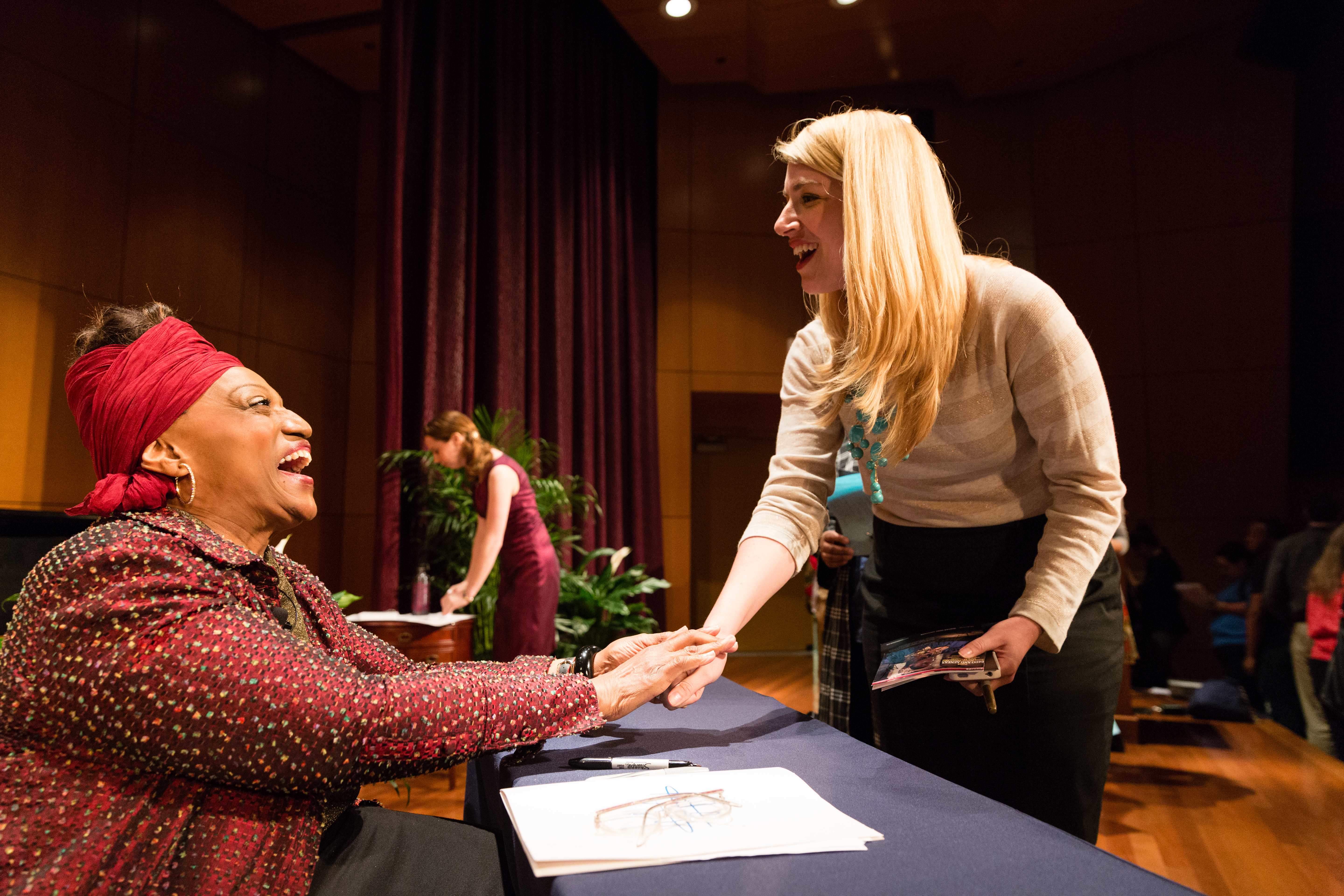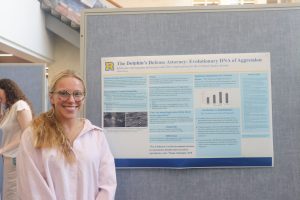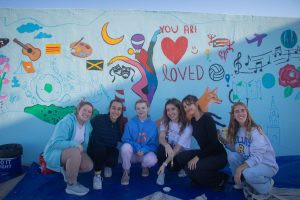It’s Wednesday afternoon, and my easily hushed Music Theory class is antsy in their seats. Music majors and professors
are scurrying around, shrieking, and adjusting bow ties. Never has such a pulsing sentiment leaked from within Keene Hall all year. Lines are bustling with both eighty- and eighteen-year old fan girls and boys flowing from Tiedtke Hall all the way outside. Jessye Norman, a renowned opera singer whose voice has graced all ears and stages, is here.
Seats fill quickly and question cards fly around the room as eager prospective opera singers and performers of Rollins’ own argue over what to ask the idol that will shortly sit before them.
And finally, the moment arrives; the audience hushes itself and Dr. Foster engages in welcoming ‘THE Jessye Norman’. She walks into the room from beyond the door and a distinguished uproar breaks from the audience as a queen graces the stage amongst fans giving her a standing ovation. No one has ever looked so elegantly beautiful.
Norman expressed that, “You are responsible for bringing the audience to tears…
Norman, humbled by the applause, requests opening up with a little speech, which is unquestionably granted. “I am of the opinion that life belongs to the community,” Norman stated. She expressed that all arts are essential to life and the creativity, along with individual expression, are each a consciousness that we should practice sharing with each other and indulge in personally. She believes that, “creativity equals self-knowledge which leads to wisdom, which leads to understanding others, which leads to tolerance.” Her stress on oneness within the community and on one another through art is reflective in the operation of her school; the Jessye Norman School of the Arts, which is reaching its tenth academic year. “Arts are falling out of the public schools and studies have proven that students with participation in arts have reflected improvement in all areas of studies.” Norman’s school is not fixated on creating Vivaldi’s and Beethoven’s though; rather it is an advocate of showing children that if they have something
to say, they have the right to voice it.
The beautiful spirituality and eloquence in which Norman spoke of the arts and individual ession was also conveyed in the discussion of her career within music. Norman said she doesn’t restrict herself to classifications such as Soprano or Contra- alto, but takes on challenges and recognizes that there are no limits and no labels. “Pigeon holes are for pigeons,” she once said. Norman expressed that, “You are responsible for bringing the audience to tears… convey[ing] the message. We are more than just singers, but actors.” She realizes that the performer must evoke the sensitivities of the work.
Some of Rollins College’s music students and professors were able to take part in a selective lunch with Norman. Junior D’Vonte Chapman caroled that, “…her knowledge and her wisdom really inspired me. She has an anointing on her life and she is very blessed with a voice such as hers … it’s magnificent. What I took most from what she said was when she told us to learn the languages, beyond school but colloquial. She made it clear that you can’t truly sing a song unless you really know the parts of speech and what exactly it is that you’re singing about.”
To see all photos, view our gallery here.










Be First to Comment